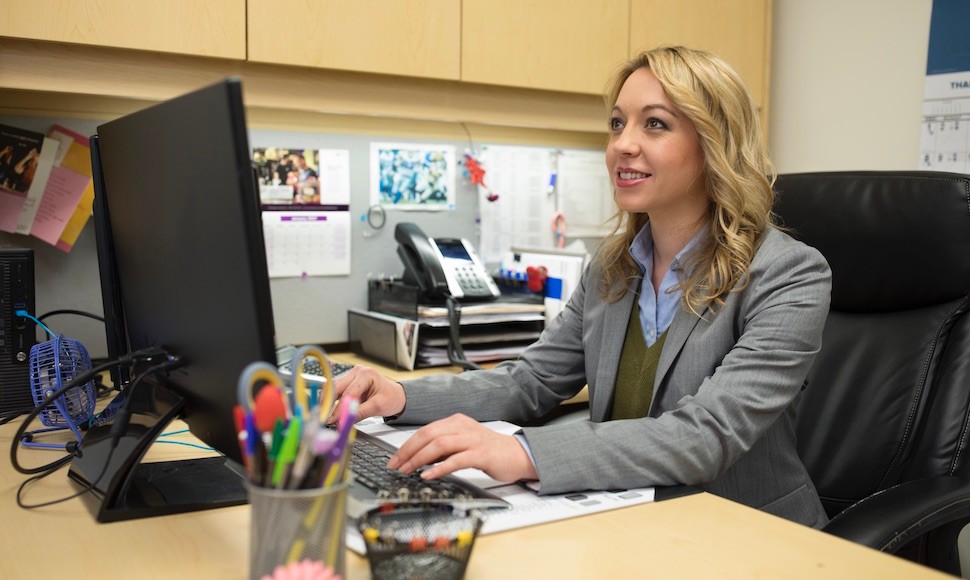
Prior Learning Assessment milestone demonstrates the importance of work and life experience for adult learners
By University of Phoenix
In May, University of Phoenix reached an impressive milestone—it awarded more Prior Learning Assessment credits in three months (March, April and May 2020) than previous years. The achievement comes at a time when adult learners are looking to upskill and enter the workforce quicker.
Prior Learning Assessment, or PLA, is an alternative method for students to earn college credits by demonstrating learning that occurred through on-the-job trainings, industry certifications, and life experiences. Essentially, it is a demonstration that learning from work and life experience have helped adult learners progress to where they are in life, something the University believes is equivalent to what is learned in the classroom. All while helping save students both time and money on their degree.
The milestone occurred between March through May, when the University awarded 6,047 PLA credits through a streamlined process. Students using the PLA process typically receive about 10 credits, which is the equivalent of taking a little more than three courses at UOPX and a savings of thousands of dollars in tuition.
Historically, students look to PLA toward the end of their academic progression rather than as they begin their program. Devin Andrews, vice president for the Office of Admissions and Evaluation, said the rewards could be even greater if the process is started at the beginning.
“We are trying to get students to think about PLA earlier in their degree program, as opposed to just filling in holes at the end of their program,” Andrews said. “If students do it earlier in the program, they have more places to put that credit.”
According to Andrews, the ultimate goal of the PLA process is to help students be more successful in their studies and accomplish their educational goals. To that end, the University recently made some changes to ensure students understood the PLA process and the benefits that can flow from it. Students are offered three options in the PLA process—submitting past training for credit, writing about their experience or taking subject-specific exams.
UOPX lowered the cost to apply for PLA to $99 to transfer any applicable credits, waived the fee altogether for the first three months of the COVID-19 crisis, and is working to identifying students who could benefit from PLA.
The University is also launching a new online tool to help students determine whether they should apply for PLA credits. The new credit predictor tool will help students identify whether their previous experience is eligible to be turned into college credit through the PLA process. The tool will show how many credits they could receive and how much time and money the PLA process could save them.
PLA shows students their life experiences aren’t wasted time, and it is never too late to go back to school
— Brooke Massey, executive career counselor in the College of Business and Information Technology
PLA also seems to have a long-term positive effect on students, Andrews said. Students who are awarded PLA credits tend to take more courses at UOPX compared to students who don’t apply for PLA credits. Andrews feels it is related to the validation students feel when their hard work and life experience are valued.“We find students are more successful as a result of PLA,” Andrews said. “So, we know having that validation that they have more to bring to the table than a college transcript would identify is powerful for students.”
Brooke Massey, an executive career counselor in the College of Business and Information Technology, said she sees first-hand the excitement when students hear about the PLA process and even more so when they see the results.
Massey works with students on applying for PLA and hears frequently from the students she advises that they regret not starting or finishing college sooner. For these students, life happened before they could get their degree.
As they go back to school after working jobs and raising families, Massey offers them a new perspective. These experiences are not a hindrance to academic progression―in fact―they add value and may even translate into college credit through the University’s Prior Learning Assessment (PLA) program.
Massey said that seeing their hard work turned into college credit is motivating, jump-starting their academic programs and boosting their confidence.
“PLA shows students their life experiences aren’t wasted time, and it is never too late to go back to school,” she said.
The process is especially validating for first-generation college students, Massey said. When they earn PLA, it shows them that many of the things they’ve mastered as adults meet the level of rigor required by a defined course outcome.
When you learn on the job, for instance, you are accruing knowledge of how to perform a task, then applying that knowledge to a positive outcome, just as you would learn a concept in a class.
“Experience is just as valuable,” Massey said. “It is just as difficult as looking at a syllabus, following directions, learning the APA formatting for a class and writing a paper or taking a test.”


